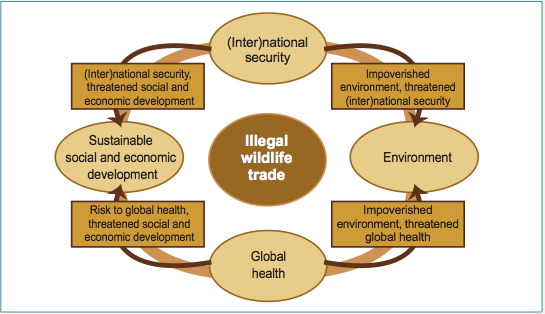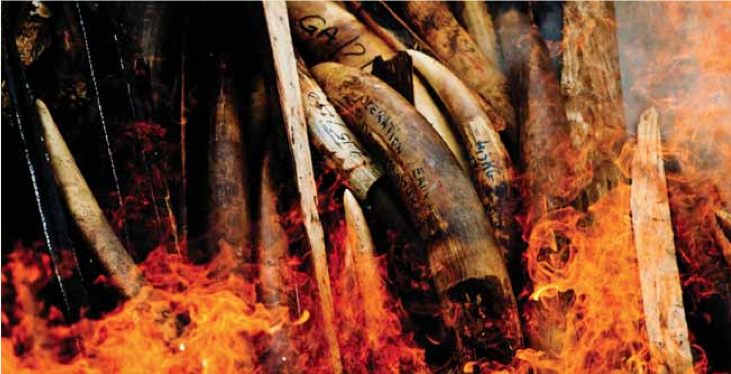Its no longer just about a Rhino horn or a just one Elephant or Tiger……..
To really understand the magnitude… Wildlife Crimes are the fourth largest global illegal trade after narcotics, counterfeiting of products and currency, and human trafficking….
A report commissioned by the WWF suggests the following Key points:
There is general agreement among governments and international organizations that the commitments made and the actions taken are uncoordinated and fail to address the issue effectively. There is broad recognition that the absence of an effective response threatens iconic species such as the rhinoceros, the tiger and the elephant and has far-reaching implications for society as a whole. Governments are in agreement that:
- Illicit wildlife trafficking compromises the security of countries. Much of the trade in illegal wildlife products is run by criminal groups with broad international reach, and the profits can be used to finance civil conflicts and terrorist-related activities. Illicit wildlife trafficking is also linked to other forms of illegal trafficking and money-laundering.
- Illicit wildlife trafficking hinders sustainable social and economic development. The corruption that is associated with
illicit wildlife trafficking, and the security threat posed by the often violent nature of illegal wildlife product sourcing, deter investment and hinder growth in source, transit and demand countries. They reduce the effectiveness of governments, deter civil engagement, erode the rule of law, harm the reputation of and trust in the state, and affect the growth of local communities.
- Illicit wildlife trafficking destroys natural wealth. Wildlife is considered an important asset by many communities – often the poorest – in the developing world. The illegal exploitation of wildlife is capable of heavily depleting species and, in some cases, of bringing a species close to extinction.
- Illicit wildlife trafficking poses risks to global health. Illicit wildlife trafficking can represent a disease transmission mechanism thatthreatens the health of humans, livestock and ecosystems, and such trade prevents more effective, regulated and legitimate treatments for disease being sought.




